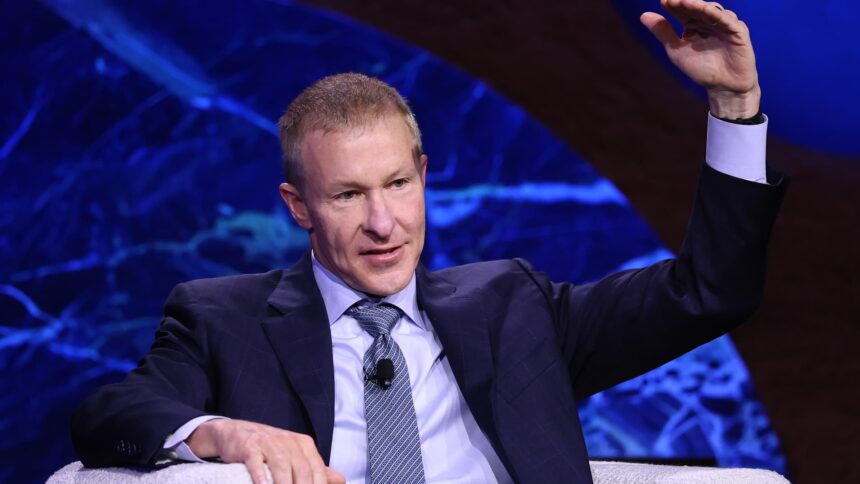At the WSJ’s Future of Everything 2025 event held at the Glasshouse in New York City, Scott Kirby, CEO of United Airlines, highlighted the airline’s strategy amidst a challenging industry landscape. The oversupply of flights this year has led most carriers to cut fares and dial back their growth plans. However, United’s expansion continues to outpace larger competitors, a trend Kirby attributes to the company’s superior product offerings, extensive network, and advanced technology features. Among these offerings are enhanced onboard amenities, such as Bluetooth connectivity and seat-back screens.
Kirby noted that 2023 is shaping up to demonstrate the importance of brand loyalty in airline travel. He stated in an interview, “If you’re a brand loyal airline, you’re resilient, even in downturns,” reflecting on the initial customer pull-back earlier this year due to fluctuating tariffs. He anticipates that positive results will follow as the economy begins its recovery, with United expected to report its third-quarter results and provide a fourth-quarter outlook later this month.
Aviation data firm Cirium indicates that United Airlines is slated to increase its domestic capacity by 5.7% in 2025 compared to 2024, a significant advantage over the average U.S. airline expansion rate of just below 2%. Competitors Delta Air Lines and American Airlines plan approximately 3% growth, while Southwest Airlines projects a modest growth of 1.4%. Kirby believes that United’s customer appeal marks a pivotal shift in the airline industry, asserting, “So many airlines thought of air travel as a commodity.”
Kirby also underscored his belief that the ultra-discount airline model is failing, pointing to Spirit Airlines, which recently filed for Chapter 11 bankruptcy protection for the second time within a year. At a recent industry conference in Long Beach, California, Kirby predicted that Spirit would eventually go out of business.
United Airlines is in the midst of a comprehensive update to its fleet, having unveiled new cabin designs in June 2021 for its narrow-body Airbus and Boeing planes. Kirby mentioned that the airline has made considerable progress on this initiative, currently about two-thirds of the way through.
The competitive landscape among U.S. airlines is becoming more aggressive as carriers race to revamp their cabin offerings. Passengers are increasingly willing to pay significantly higher fares for added comfort, with some opting for premium seats that can cost ten times more than standard economy fares. Delta Air Lines’ president, Glen Hauenstein, recently discussed at a Morgan Stanley conference that a substantial portion of Delta’s revenue—well over half—now stems from sources outside the main cabin, particularly driven by its lucrative loyalty program. He also indicated that Delta plans to offer a “record number” of premium seats in the coming year, implying a continued commitment to enhancing customer experience in the face of evolving industry dynamics.







